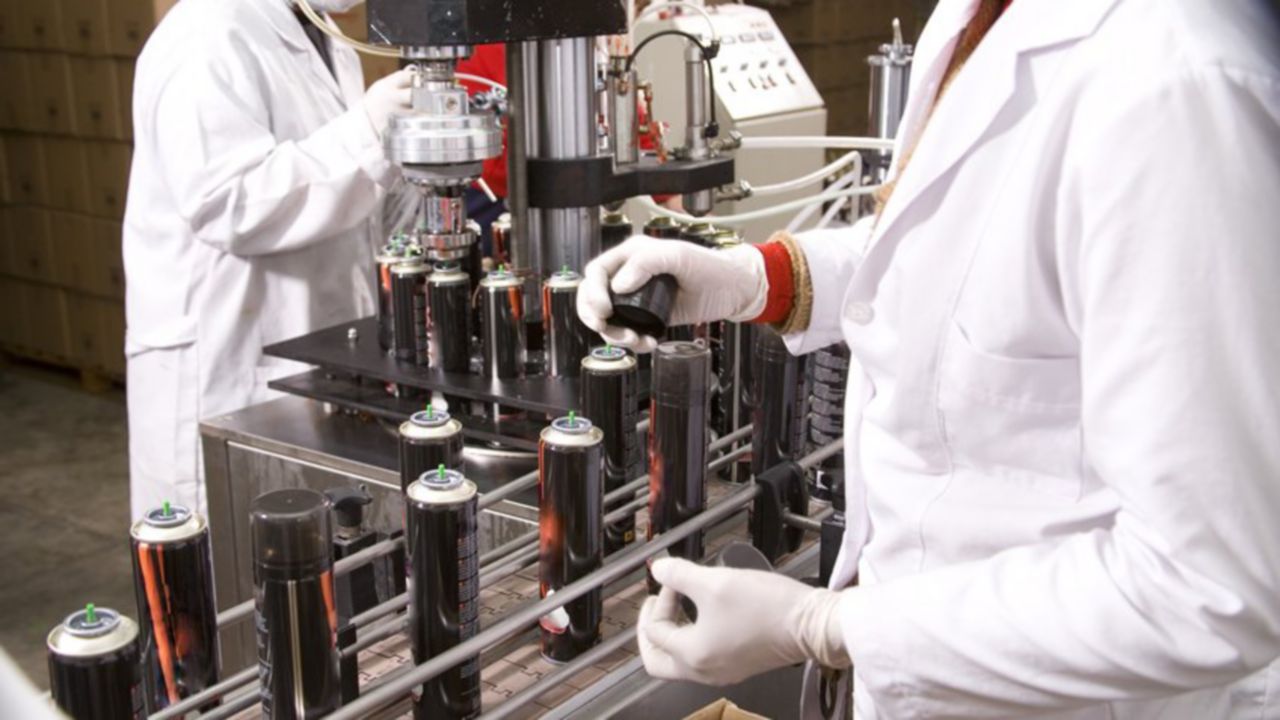Challenge
- New production line was significantly underperforming, with 2,500 start/ stops per 12-hour shift
- Lack of insight into root cause of frequent production-line stoppage
Solutions
- FactoryTalk Metrics software lets operators understand downtime causes
- Software collects detailed machine data from multiple control systems for accurate, timely and granular reporting on machine performance, including OEE metrics and 14 key performance indicators
- Configurable data is accessible via any web browser
- Rockwell Automation Solution Partner for Control, Process and Information, Prime Controls, engineered, configured and implemented the complete information solution
Results
- Reduced line-stop occurrences by 90 percent
- Saved $100,000 per year on service costs and downtime
Background
Ancient Greeks lined their eyes with kohl, and Romans dabbed their faces with rosewater. But never have we seen such demand for beauty products as today.
The global cosmetics industry is a multibillion-dollar business – and growing. A few multinational corporations produce nearly half of the world's cosmetics, and for the thousands of other manufacturers, competition is keen. Production quality and efficiency are imperative to business survival.
Challenge
A leading global cosmetics manufacturer recently added a new line to its Dallas plant to increase production quantities of mascaras and lip glosses, bringing the plant's total number of production lines to 29.
Plant management expected the new line to produce between 100-120 containers per minute. But once production went online, output was disappointing, and there were frequent line stoppages. To improve its measurement of overall equipment efficiency (OEE) and gain greater control over the efficiency and quality of the new line, management enlisted the help of Lewisville, Texas-based Prime Controls, Solution Partner for Control, Process and Information under the Rockwell Automation PartnerNetwork, and leading information and control construction firm.
“The new line was logging an incredible amount of downtime,” said Bill Bivens, vice president of business development for Prime Controls. “The customer recorded in excess of 2,500 stops/starts per 12-hour shift, and they couldn't detect the source of the problem.” The plant lacked the manufacturing intelligence it needed for root-cause analysis.
Solutions
Prime Controls implemented a manufacturing intelligence solution using FactoryTalk® Metrics software from Rockwell Automation to efficiently monitor, collect and analyze data. The application can collect and provide reports on any machine events that can be detected in the control system.
Prime Controls evaluated existing operations on the new line, designed as a chain of multiple transfer conveyors with five work-cell stations. An Allen‑Bradley® ControlLogix® programmable automation controller (PAC) and an Allen‑Bradley CompactLogix™ PAC automate the production machinery, including bottle feeders, fillers, labelers, cartoners and packers. Since implementing FactoryTalk Metrics software, plant management has the granular answers they need to understand the “why” of machine performance, pinpointing the root causes of downtime and loss.
All controllers are tightly synchronized via the plant's EtherNet/IP™ network – but integration between machine controls and the plant's existing manufacturing software was less effective and limited to bar-code readers that required operators leave their work station to manually select a fault for any downtime. Many shorter periods of downtime were never tied to any fault. Prime Controls engineers design logic and configured the new software to automatically assign downtime to a specific root fault or other events, effectively determining the source of line stoppages.
The Prime Controls team installed FactoryTalk Metrics software on a local server and connected the program directly to the plant's network. After migrating the existing application to the FactoryTalk database, engineers analyzed the line in running mode. They determined that the machine with the highest OEE rating was running at maximum level while other machines were either starved or blocked – something that wasn't visible to the human eye.
The first machine on the line – the bottle feeder – was in starved status 60 minutes per shift all combined. This was an easy fi x, as it only requires proper stocking. They also realized the labeler was switching states too rapidly. After attributing all downtime to specific faults, engineers began editing existing programming codes. They decreased the labeler's buffer alarm to prevent the machine from switching into starved mode too frequently.
Engineers then configured the FactoryTalk software to calculate and visualize OEE for the monitored equipment. Now, when operators are notified of an alarm, they can easily understand the root cause of stoppage or inefficiency, and access the data they need to identify actionable areas for improvement.
Results
With FactoryTalk Metrics software, key performance indicators and other vital data are easily accessible via Web browser. Using contextual, real-time machine and line data, plant management can now establish meaningful production metrics beyond an improved OEE score to achieve significant cost reductions.
Since implementing FactoryTalk Metrics software, plant management has the granular answers they need to understand the “why” of machine performance, pinpointing the root causes of downtime and loss. The result: measurable improvements in production quality and efficiency. The plant reduced per-shift machine starts/stops by 90 percent – from 2,500 to 250. It also recorded a 15 to 20 percent increase in uptime and is saving $100,000 annually in service-contract costs and productivity improvements.
“The customer now has the transparent machine status they needed all long,” said Bivens. “Plant management can evaluate product-loss calculations and true machine efficiency, and maintenance managers can see a list of down time events relative to actual machine alarm codes.”
With new, granular manufacturing intelligence, the cosmetics manufacture can easily evaluate line deficiencies and identify needed improvements – giving management the knowledge and confidence they need to keep pace with their demanding industry.
Published May 29, 2015

